10 Best Foods for Your Heart
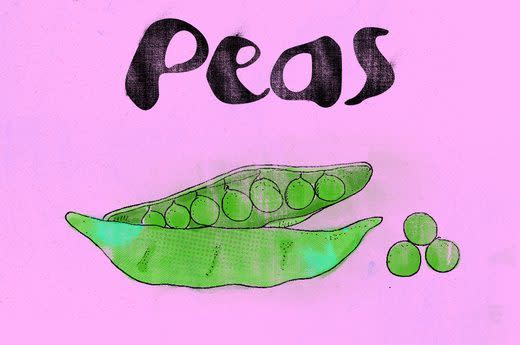
Eat these heart-healthy foods. (Graphics: AlexTraboulsi.com)
In a fast-paced world where convenience trumps (more time- and labor-intensive) healthy home cooking, the battle is on to protect your heart. The food choices you make can drastically affect your heart health, energy and appetite control. Keep your heart in tip-top shape with choices that are tasty, healthy and convenient for the entire family.
1. Peas
Sneak peas into a bowl of pasta or a salad, or use them alone as a heart-healthy side dish. “Peas are loaded with fiber, and they provide a sweet burst of flavor and add bright colors to any dish,” says New York-based nutritionist Keri Glassman. Peas can also help with weight management, a key ingredient to staying heart healthy. One cup of peas has fewer than 100 calories with an abundance of micronutrients, fiber and protein.
“Try frozen peas, which are flash-frozen at the peak of ripeness, and steam them for a bright addition to salad or even omelets,” recommends Keri Glassman, New York-based nutritionist, television cooking host and author of “The New You (and Improved) Diet.”
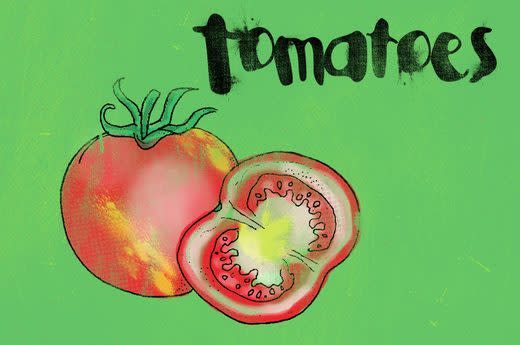
2. Tomatoes
Tomatoes contain a solid dose of heart-healthy vitamin C and like watermelon, are rich in lycopene. “Try making your own tomato sauce with canned or fresh tomatoes, and add oregano and chopped-up veggies for a gourmet, homemade pasta sauce with mega antioxidant power,” says Glassman.
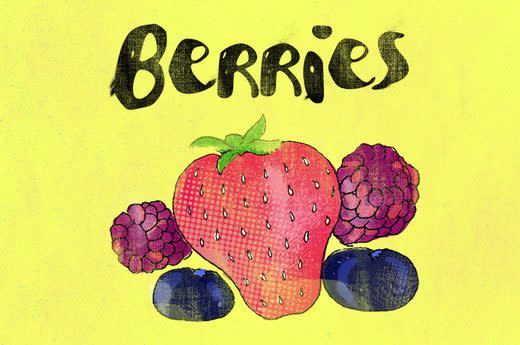
3. Berries
Packed full of antioxidants, berries are a great snack choice to keep your heart healthy. Berries increase good cholesterol (HDL) and lower bad cholesterol while lowering your blood pressure. In addition, the low-calorie, fat-free fruit (in any form: fresh, frozen, dried or cooked) contains nutrients that promote bone growth and the conversion of fat to energy.
Related: Plant-Based Recipes for Meatless Monday (or Any Day)
“These little cancer fighters combat oxidation and inflammation and should be eaten daily,” ays Rea Frey, Chicago-based nutrition specialist and International Sports Sciences Association certified trainer. As if that’s not enough, the hardworking fruit possess polyphenols, which have been shown to increase levels of nitric oxide, a molecule that causes blood vessels to relax.
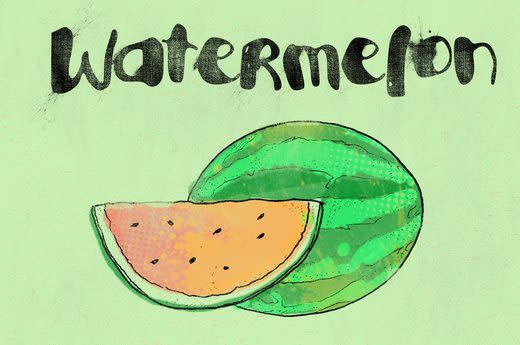
4. Watermelon
Satisfy your sweet tooth while chomping on a slice of watermelon, a low-calorie treat that is high in fiber and a great source of antioxidants, according to Dr. Sarah Samaan, cardiologist with Legacy Heart Center in the Dallas-Fort Worth Metroplex. “It’s a fabulous source of lycopene, which has been linked to a lower risk for heart disease and cancer,” Samaan says. “Watermelon also supplies citrulline, which may improve the health of our blood vessels and may even have benefits for people with erectile dysfunction and diabetes.” Watermelon is also a source of vitamins C and A, as well as potassium and magnesium.
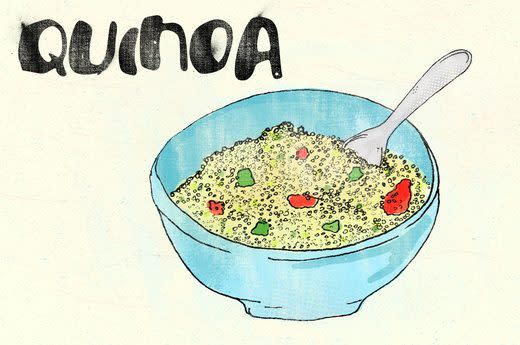
5. Quinoa
This Peruvian wonder pseudo-grain (it’s actually a seed) is an incredible nutritional multitasker, according to Samaan. “It’s a fabulous source of vegetable protein, which is better for heart health, kidney health and blood pressure than protein from red meat.” In addition, she points out that quinoa contains almost twice the amount of fiber as other grains. Full of antioxidants and a good source of heart-healthy monounsaturated fat – the same type of fat found in olive oil and avocados – quinoa is a much-needed source of fiber and is gluten-free. “What’s more,” Samaan notes, “quinoa is easy to cook, very versatile and really delicious.”
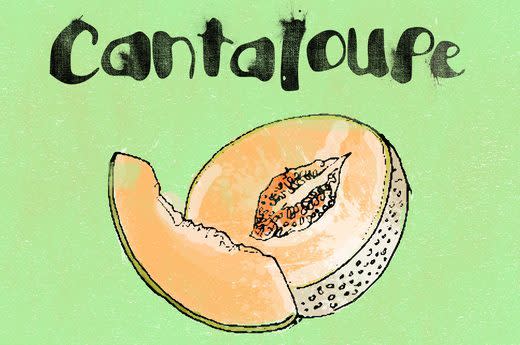
6. Cantaloupe
As the seasons change, so do the fruit and veggie harvests; however, this heart-healthy melon is available year round. Packed with vitamin C, cantaloupes offer a sweet treat to nibble on throughout the day, says registered dietitian Keri Glassman. According to Glassman, research has shown a link between increased vitamin C consumption and a decreased risk of coronary heart disease, because vitamin C is an antioxidant that works to fight damaged cells while protecting cells from free radical damage. This sweet melon is also packed full of vitamins A, B, K, potassium, folate, magnesium and fiber.
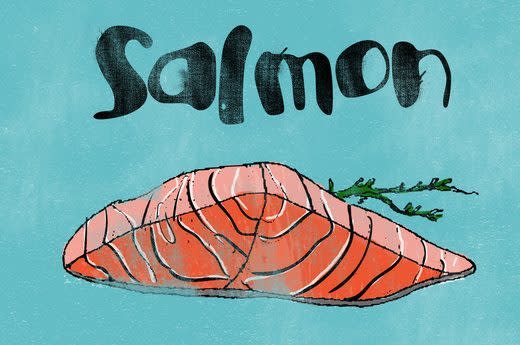
7. Salmon
When you serve salmon as your main entrée you’ll keep your blood pumping and your heart in prime shape. Studies show consuming fish regularly each week is associated with a 30 percent lower risk of developing coronary heart disease over the long term, notes Georgia-based nutritionist Dr. Keith Kantor. “Cold water fish, such as salmon, contain omega-3 fats, lower levels of harmful lipid levels,” Kantor says.
Related: The Top 10 Most Hydrating Snacks
“Omega-3s also lower blood pressure slightly and can help prevent irregular heart rhythms, while also reducing inflammation throughout the body.” Serve your salmon with a side of collard greens and you have a scrumptious, heart-friendly meal.
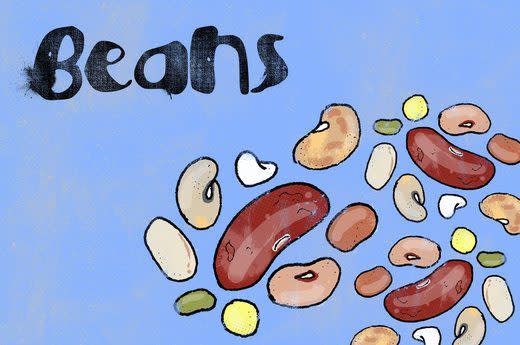
8. Beans
Just a half-cup of beans a day will keep your heart in optimal shape, according to Dr. Keith Kantor. “Soluble fiber is a key reason why beans are beneficial to your heart,” he says. “The fiber binds to cholesterol and keeps it from being absorbed in the gut and building up to unhealthy levels.” Add some black, kidney, lima, navy, pinto or white beans to your next meal for that extra dose of soluble fiber, in addition to folate, magnesium, calcium, omega-3 fatty acids and B-complex vitamins – all essential nutrients to keep your heart healthy.
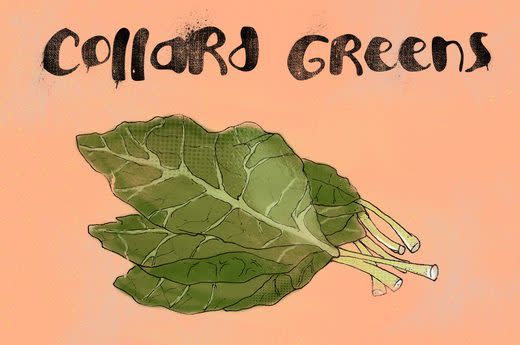
9. Collard Greens
Low in calories and packing a hefty nutritional punch, collard greens contain vitamins K, A and C, as well as folate, manganese, calcium and fiber and much more. These important nutrients allow your blood to clot normally, help prevent calcification of your arteries and even protect your bones from fracture. “Collards have even been found to bind bile acids in the digestive tract, which lowers the body’s cholesterol,” says Rea Frey. “Collard greens also increase cardiovascular health due to their anti-inflammatory properties.”
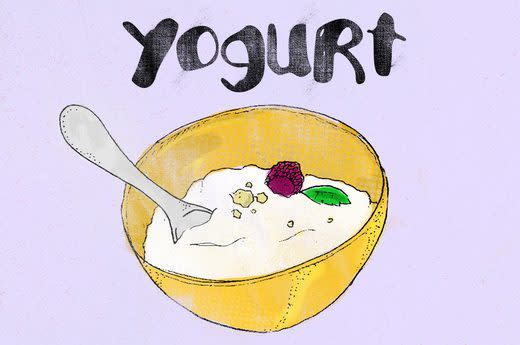
10. Yogurt
For a sweet and savory treat that won’t clog your arteries, opt for a cup of yogurt, which will protect more than just your heart, says Dr. Andrea Paul, a physician and chief medical officer at Boardvitals.com, an online medical question bank. “Yogurt protects against gum disease, which can increase your risk of heart disease,” she says. In addition to reducing your risk of heart disease, according to Paul when you eat low-fat yogurt, you also absorb powerful antioxidants, vitamins, fiber and probiotics that are beneficial to your overall health, digestion and well-being. Top with fresh or frozen berries for a sweet and healthy treat during the day.
The original article “14 Best Foods for Your Heart“ appeared on LIVESTRONG.COM.
By Shannon Philpott
More from LIVESTRONG.COM:
6 Easy Smoothie Breakfast Bowls
